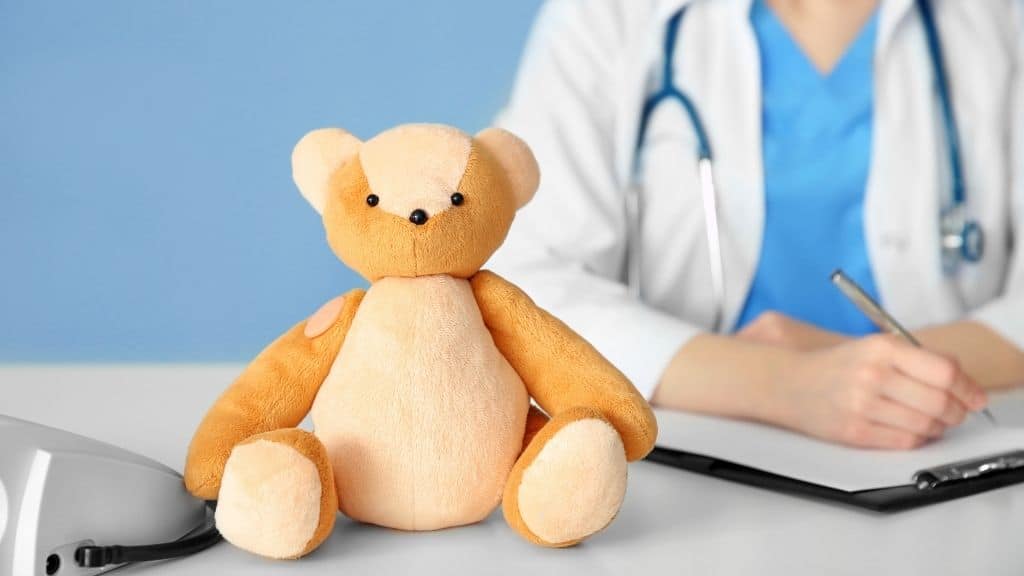
Table of Contents
Who is a Pedicatrician
Pediatrician: The word “pediatrics” literally translates to “healer of children,” which is derived from two Greek words: (pais = child) and (iatros = healer or doctor). A Pediatrician, hence, literally translated, is a doctor for babies and adolescents up to 18 years, who takes care of the physical and mental wellbeing of a child.
A pediatrician is the next big thing to a magician in your child’s life.
Who Is A Pediatrician? How To Become A Pediatrician?
In order to pursue pediatrics, most doctors are required to attend an undergraduate pre-med program followed by a medical school comprehensive program. After graduating from medical school, one needs to complete a residency program designed to give the doctor a real-world experience and a first-hand learning program.
After completing residency, some doctors may even opt for a fellowship program or additional training before entering their own practice to specialize in further pediatric fields such as pediatric cardiology, pediatric nephrology, etc.
How Long Does It Take To Become A Pediatrician, How Long Is The Program?

Besides the long hours that go behind becoming a doctor of any kind, one needs to be emotionally invested in the idea of becoming a medical professional. Empathy and patience are the two most important skills required to become a pediatrician. Skills and emergency management are the other two pillars of a successful pediatric career.
What Does A Pediatrician Do? What is the Job Profile?
A pediatrician looks after neonates, infants, children, and adolescents. It is in the portfolio of a pediatrician to take care of the end-to-end health and well-being of your child.
From attending the delivery of your child to vaccinations and basic seasonal issues like sore throats or upset stomach – all the way to treating serious conditions like kidney infections and detecting cancers, are all in a pediatrician’s portfolio!
When Do I Need a Pediatrician? - Who Is A Pediatrician?
The job of a pediatrician starts right at birth when you need a pediatrician to attend to the delivery of your child and then perform basic vaccinations alongside monitoring the growth and development, and , and routine checkups until the age of 18 years.
A special mention for the physical and mental well-being of an adolescent is on the competent shoulders of a pediatrician. Right from the cervical cancer vaccination in women to sex education, safe practices, menstruation problems, and then mental health issues are all looked after by your pediatrician.
Most importantly, this is a bargain by virtue of costly injuries and illnesses that are prevented, keeping the health of the child not just for that year, but for a lifetime.
How Long Do I Need Pediatrician Follow-Ups for My Child?
Typically, a pediatrician is responsible for looking after your child till about 18 years of age.
What's The Most Important Thing to Know While Seeing a Pediatrician? - Who Is A Pediatrician?
If you are following one pediatrician right from the birth of your child, you will not ideally need to worry about anything your doctor will have a record of your child.
However, if you need to change your doctor after childbirth, make sure you have all details handy. For example, mode of birth, birth weight, any difficulty at birth, developmental milestones, vaccination status, any allergies, or any other significant medical history like specific medications, surgeries, or any other known illnesses.
When Do I Need To See a Super Specialist? What Does A Pediatrician Do?
A pediatrician is a doctor who connects you to further super specialties if need be according to the medical condition of your child. Some of them are:-
- Neonatologist
- Adolescent medicine
- Pediatric cardiology
- Pediatric emergency medicine
- Pediatric endocrinology (treatment of hormone-related issues, including diabetes)
- Pediatric gastroenterology (treatment of the stomach and intestines)
- Pediatric hematology-oncology (treatment of blood disorders and cancer)
- Pediatric nephrology (treatment of the kidneys)
- Pediatric pulmonology (treatment of the lungs)
- Pediatric rheumatology (treatment of autoimmune illnesses)
- Pediatric infectious diseases
- Pediatric Dermatology (skin disorders)
- Pediatric Orthopedician (bone disorders)
- Pediatric Surgeon
- Pediatric Transplant Hepatology (liver transplant)
- Developmental-behavioral pediatrics
- Child abuse pediatrics
- Pediatric critical care medicine
- Pediatric hospital medicine
- Hospice and palliative medicine
- Medical toxicology
- Sleep medicine
- Sports medicine
How Is a Pediatrician Different From a General Physician? - How To Become A Pediatrician?
Children are not mini-adults and this is a huge myth that needs to be busted. This is also why you cannot and should not visit a general physician for your child’s health issues. Your family’s general medicine specialist cannot treat or see your child simply because: the mechanism of diseases, medicine dosages, and even pathogenesis is different apart from their emotional needs.
Scope of Pediatrics:
As you may already know, a huge chunk of our population comprises children. The number of births all over the world is increasing day by day, especially in developing countries. Children younger than age 18 constitute approximately one-fourth of the U.S. population.
The body of a child does not have the full capacity of an adult and they are more prone to infection, and more susceptible to diseases. Moreover, worldwide children represent a major proportion of the population. They need special care and special attention other than the methods of adults – this is where the application and scope of pediatrics come to play.
Hear It From The Horse's Mouth: My Experience As a Pediatrician So Far! - What Is A Pediatrician?

As a practicing consultant and a teacher, better explained in my niece’s words (my fav patients!) from their favorite series Harry Potter, – ‘it’s like magic!’ You know the disease and your ‘wand’ is used to write endless prescriptions. And there you finally feel sanguine.
On most days it feels great, there’s a sense of accomplishment, on a few there is a never-ending surge for more knowledge, giving more exams and on lesser days, there is a feeling of being run in auto mode.
On a typical morning, pediatricians begin their day by visiting the hospital to receive updates from the nurses and look at charts to analyze their patients’ progress. Then, they head back to their office and see an average of forty patients per day. Unlike other doctors, pediatricians confer with the parents of the patients about the recommended treatments and schedule follow-up consultations.
Sixty hours or longer work weeks are common for pediatricians; therefore, they do not have much time for leisure activities. You will find a typical pediatrician often reading articles and books to stay up to date with medical and technological advances. As a result, it is not uncommon for a pediatrician to not be married or not have kids, especially women pediatricians.
Apart from being a doctor of the most innocent humankind, the added bonus of being a child specialist makes you ready for parenthood. You tend to understand simple lessons of life’s joys, you know that there is always going to be light at the end of the tunnel, just like the candy awarded to little children after vaccinations. Being a pediatrician is both taxing and rewarding!
On the flip side, however, there are some less attractive facets of being a pediatrician too.
Every profession has its shortcomings, and being a pediatrician is really no different. As in all areas of medical practice, as a physician, you will be required to handle too much paperwork and deal with what we clinical, non-administrators call the “bureaucracy of the business of medicine.”
This is fr sure a tricky act to juggle for a longer career – but as and when it comes to doing what’s needed it really becomes something that a pediatrician just does it.
The hours become tough, especially “being on-call.” Initially, it does sound quite exciting to be available to help people at all times, but eventually, it becomes a bit tiring. The exhaustion also manifests itself as psychological stress rather than physical stress, given that with the evolution of technology, it has now become as simple as picking up your phone to reach out to your doctor. In this sense, the family life of a 2008 pediatrician is somewhat preserved.
Signing off – I’d really like to say your doctor may not always seem like they are at their best, a perfect 10/10; but at any given time, your doctor will always strive to achieve a solution and make sure you exit their office happy and healthy!
Need to Know About Pediatrician FAQ
1. Who is a Pediatrician?
2.What does a pediatrician do?
3. Can I become a pediatrician? How long does it take?
Written By-

Nimrat, Pediatrics
Dr. Nimrat S Sidhu is a practicing pediatrician for about 5 years now and holds an MD pediatrics degree. She was the topper of her batch, has always had a keen interest in her core medical field, and is specially trained for neonatal resuscitation.
On behalf of the editorial team at Parenthoodbliss, we follow strict reporting guidelines and only use credible sources, along with peer-reviewed studies, academic research institutions, and highly respected health organizations. To learn about how we maintain content accurate and up-to-date by reading our medical review and editorial policy.





